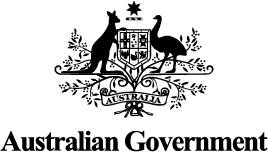Wednesday, August 30, 2023 - 10:53
The independent Inspector–General of Water Compliance, the Honourable Troy Grant has welcomed the successful rollout of automated external defibrillator (AED) units across the organisation’s regional offices and fleet vehicles. Complementing the use of the AEDs in the event of a sudden cardiac arrest, every staff member working to support the Inspector–General of Water Compliance (IGWC) has undergone compulsory CPR training, something the agency has made an annual requirement of all staff.
“With a network of field officers travelling the length and breadth of the Murray-Darling Basin, sometimes in remote areas for extended periods, we have a duty of care to ensure their safety, and the safety of the community we meet with either the farm gate or the many towns we visit,” said Mr Grant. “Having the awareness and training to assist in an emergency is terrific, but having the right equipment can literally be a life saver.”
The IGWC has regional offices servicing the Murray-Darling Basin in Goondiwindi, Dubbo, Albury, Mildura and Loxton. Also based out of these offices, a network of field officers whose role it is to be the ‘eyes and ears’ for the Inspector-General when engaging with communities throughout the Basin. A field officer is a fully mobile member of the IGWC, travelling to all corners of the Basin while undertaking duties, most of the time off the beaten track or visiting the Basin’s smaller towns and villages.
“As part of the many skills these field officers possess, they are also trained in remote first aid and now have the added confidence of having an AED close at hand,” said Mr Grant. “The nature of our work and distances travelled by field officers means help might not just be around the corner, in fact, it could be quite some time and distance away. Similarly, some of our regional offices also share street frontage which means IGWC staff are equipped should an emergency nearby require the access to, and use of an AED.”
Heart Research Australia says, CPR performed by a bystander immediately after sudden cardiac arrest can double or triple a patient’s chance of survival. Using a defibrillator within the first minute of sudden cardiac arrest, can potentially bring the chance of survival rate up to 90%.
The IGWC has invested in 11 AEDs across its network of regional offices and field officers.






